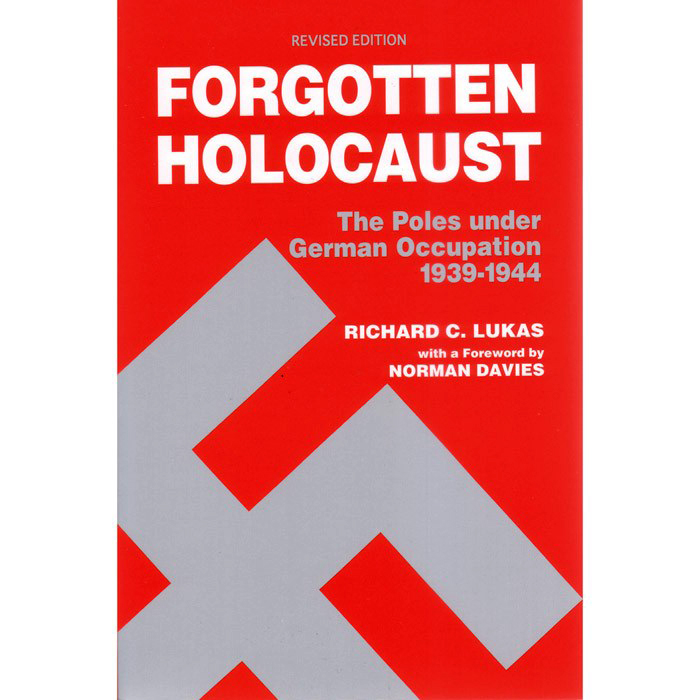Until I reached young adulthood, my knowledge of Poland’s history during World War II was minimal. While I had learned of Hitler’s genocide of the Jews of Europe, I knew nothing of the suffering of any other group. As a child I naively thought that the non-Jewish, civilian population largely managed to avoid the horrors of war. How wrong I was.
Forgotten Holocaust: The Poles under German Occupation, 1939-1944 by Richard Lukas is the best attempt so far to shed light on this lesser known part of history. The Poles were the first nation to feel the full brunt of Hitler’s maniacal plans. From the first day of the war civilians were targets of bombing, strafing and over 16,000 Poles were executed within several months. The Nazis carried out a systematic campaign, AB Aktion, against Poland’s intelligentsia in the first half of 1940, arresting tens of thousands and executing over 6,000 more individuals, burying their bodies in forest pits. Auschwitz, the most notorious Nazi enterprise, began as a concentration camp for Polish “political prisoners”. Witold Pilecki, one of the bravest individuals of World War II, volunteered to be arrested during one of Warsaw’s random street roundups, and taken as a prisoner to Auschwitz to report to the Polish Home Army on conditions in the camp. Surviving for nearly three years before escaping, Pilecki sent the first reports of Hitler’s evolving Holocaust and the accelerating elimination of Europe’s Jews.
Forgotten Holocaust not only illuminates the Nazi policy of extermination in Poland, but describes the armed resistance of the Polish people. A multitude of underground, military organizations formed before the September Campaign ended, and coalesced within several years to form the Armia Krajowa (Home Army), composed of several hundred thousand sworn soldiers. The AK carried out sabotage against the Nazis throughout the war, bombing train tracks and destroying communication lines, they collected and transmitted military intelligence to the Allies and carried out executions of traitors and Nazi collaborators.
Poland was the only country in Europe where assisting and hiding Jews was punishable by death. Unsurprisingly, some Poles betrayed their Jewish neighbors as an act of self-preservation, anti-semitic hate or perhaps a mixture of both. The Home Army however decreed that such acts were capital offenses, and carried out death sentences on those who informed on Jews. Civilian authorities in occupied Poland organized Żegota, an organization dedicated to rescuing Jews (particularly children) by transferring them to safe houses and falsifying their identities, all at the risk of torture and execution at the hands of the Nazis.
Having just marked Holocaust Remembrance Day, the anniversary of the liberation of Auschwitz by the Red Army on January 27, 1945, it’s time to revisit the meaning of the Holocaust for all of Europe’s peoples. As Norman Davies aptly states in the foreword to the book, “…no one can analyze the fate of one ethnic community in occupied Poland without referring to the fates of other…readers should receive a comprehensive picture of occupied Poland, so that each and every one of the separate but interlinked tragedies can be fully understood. Luka’s book marks an important step in that direction.”
Richard Lukas has done a great service through his book, not only filling a glaring void in World War II scholarship, but by giving us a window through which to better see and understand the greatest period of suffering in modern history. Though challenging to experience, the powerful emotions of revulsion, indignation, empathy and understanding are the vehicles by which we come to know the truth.
